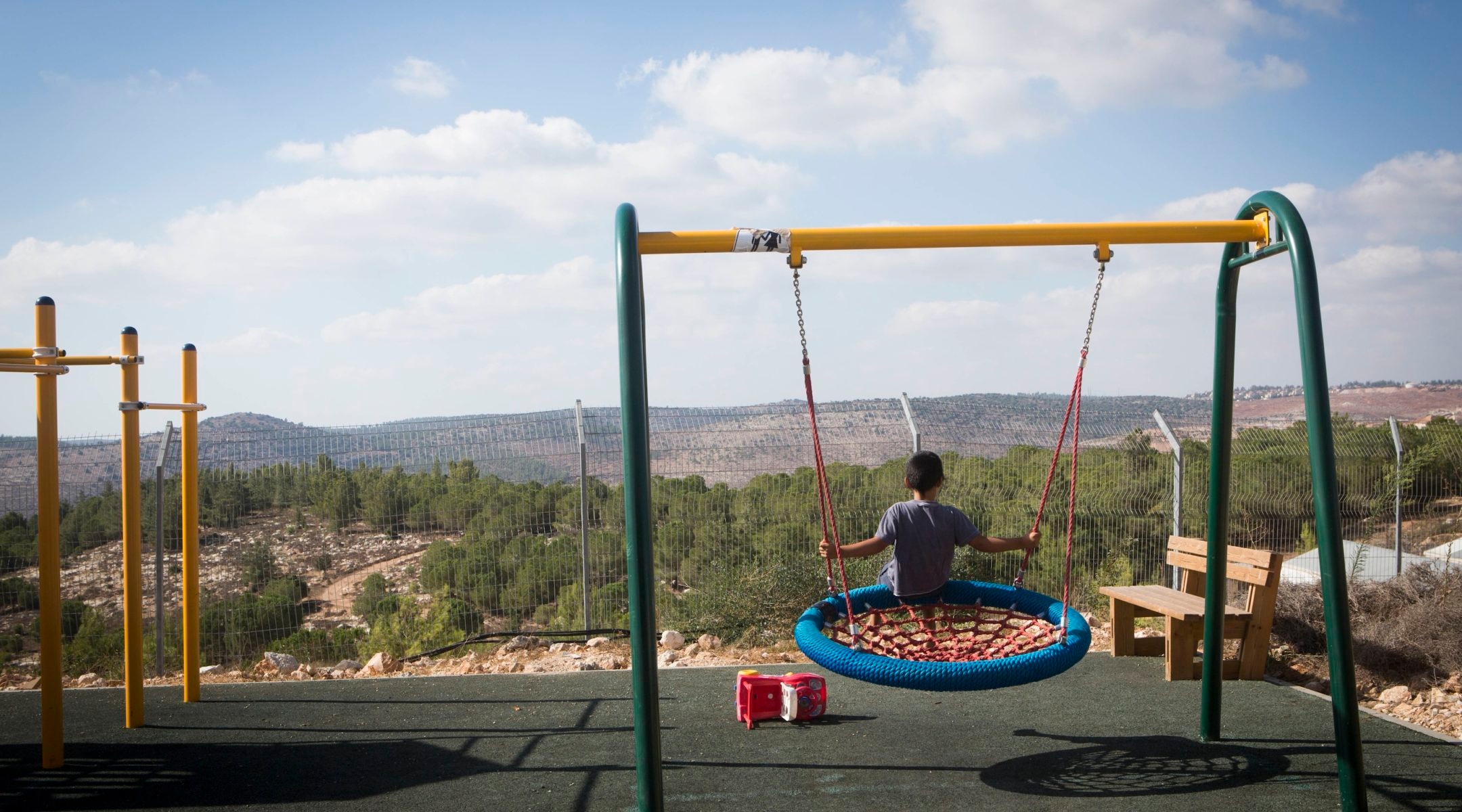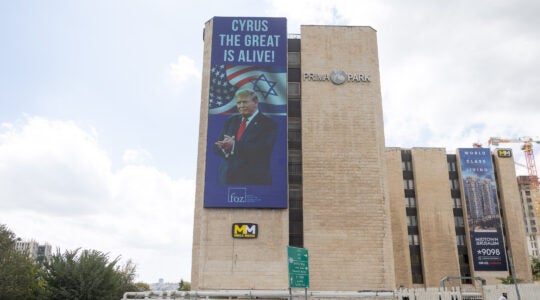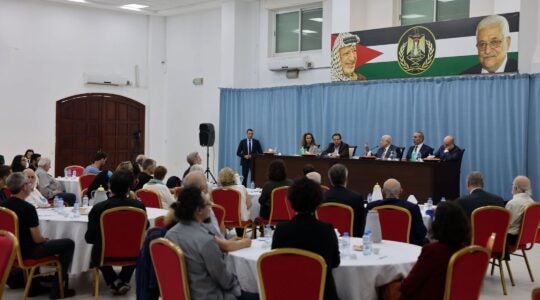TEL AVIV (JTA) — In the days after the war in Gaza concluded, Israeli Prime Minister Benjamin Netanyahu appeared to bear left.
He spoke of a “possible diplomatic horizon” for Israel on Aug. 27 and suggested a return to Israeli-Palestinian peace talks. Reports emerged that Netanyahu had met secretly in Amman with Palestinian Authority President Mahmoud Abbas.
But on Sunday he took a sharp right turn, seizing nearly 1,000 acres in the West Bank as state land near the Etzion settlement bloc. The move is a prerequisite for settlement expansion and prohibits Palestinians from using the land for building or agriculture.
According to Israeli reports, the government seized the land in response to the nearby kidnapping and murder of three Israeli teens in June.
The land seizure — Israel’s largest in decades — drew condemnation from the Israeli left and from the international community. The U.S. State Department said it was “counterproductive” for the peace process. In a statement, the left-wing NGO Peace Now called the move “proof that Prime Minister Netanyahu does not aspire for a new ‘Diplomatic Horizon.’ “
“Israel is trying to be territorially maximalist in the area and to deny territorial contiguity to the Palestinians,” Hagit Ofran, the head of Peace Now’s Settlement Watch, told JTA. “The message of this act is clear: The inclination of Israel is not to peace and compromise but to continuation of settlement.”
But some experts said that though the move hurts Israel diplomatically, critics overstate its importance on the ground. The area is a strip of land adjacent to the West Bank that Israel intends to keep under any peace deal. Declaring it state land was, they said, a way for Netanyahu to placate his allies on the right after opposing their suggestion to depose Hamas during the Gaza war.
“I think it falls in a certain pattern,” Michael Oren, Israel’s former ambassador to the United States, told JTA. “The government does something that is unpalatable to the right wing, whether it be making concessions in the peace process or, in this case, agreeing to a cease-fire in Gaza, and then it attempts to palliate the right by building in Judea and Samaria or, in this case, reclassifying land.”
According to Maj. Guy Inbar, spokesman for the Israel Defense Forces’ Coordinator of Government Activities in the Territories, the seizure is only the first step toward a potential settlement expansion.
Palestinians who claim the land have 45 days to challenge the decision in Israel’s courts. If the appeals fail, the government still has to make an additional decision to legalize building there before any construction can begin. An illegal Israeli settlement outpost, Gvaot, already sits on a portion of the land. Several surrounding Palestinian villages, according to Ofran, have laid claim to the land. But Inbar said an Israeli investigation found the land has not been used for decades.
Netanyahu has backtracked before on settlement expansion plans following international criticism. In 2012, Netanyahu announced Israel’s intention to build in an area known as E1, which sits between the Palestinian cities of Bethlehem and Ramallah, as well as between Jerusalem and the Israeli settlement of Maale Adumim. The United States opposed the plan, and nearly two years later the land sits empty.
But Sunday’s seizure does prohibit Palestinian use of the land. And Israeli politicians and commentators have criticized Netanyahu for alienating Abbas and Israel’s allies just as the sides could have restarted peace talks following the Gaza cease-fire agreement.
“[The] announcement, which wasn’t brought to the Cabinet, regarding 900 acres of land for building in the Etzion bloc harms the State of Israel,” Israeli Finance Minister Yair Lapid of the centrist Yesh Atid party said Tuesday in a speech. “Maintaining the support of the world was already challenging, so why was it so urgent to create another crisis with the United States and the world?”
Meanwhile, the future of peace talks remains unclear. Negotiations ended in April after nine months as Israel reneged on a scheduled release of Palestinian prisoners. Abbas responded by applying for Palestinian accession to a range of international treaties, and talks collapsed as Abbas formed a unity government with Hamas.
According to reports, Abbas said he won’t return to talks unless Israel proposes a border in their initial stage. Should Israel refuse, Abbas reportedly plans to turn to the United Nations Security Council to call for an Israeli West Bank pullout.
Palestinian officials also threatened recently to apply for membership to the International Criminal Court, which could allow the Palestinian Authority to sue Israel for settlement building and allegedly violating Palestinian rights. But Abbas has yet to submit the application.
“Given that there’s no negotiations, trust with the P.A. and Abbas is not at a premium,” said Jonathan Rynhold, a senior research associate at Bar-Ilan University’s Begin-Sadat Center for Strategic Studies. “If [Netanyahu] offers a fairly generous territorial offer, this will be irrelevant.”
JTA has documented Jewish history in real-time for over a century. Keep our journalism strong by joining us in supporting independent, award-winning reporting.






